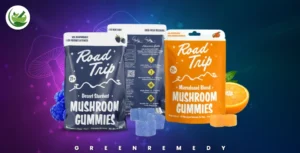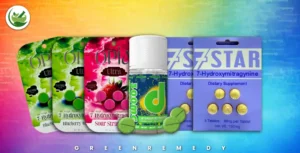
Cannabidiol has become a hot topic in the health and medical worlds in recent years. CBD, which is derived from the Cannabis sativa plant, has been praised for its potential medicinal advantages, which range from pain treatment to anxiety reduction. However, because of its expanding popularity, a profusion of information is flowing, resulting in a combination of myths and truths. In this essay, we’ll debunk some prevalent CBD myths and shine light on the truth of Cannabidiol.
Read more CBD blogs
Myth 1: Cannabidiol causes euphoria
One of the most common misconceptions regarding CBD is that it produces a psychotropic high like its related chemical, THC (tetrahydrocannabinol). This, however, is a common misperception. CBD is non-psychoactive, which means it does not provide the euphoric effects that THC does. While both substances are present in cannabis plants, CBD is usually extracted from hemp, which contains trace quantities of THC.
Fact 1: Cannabidiol use is legal and safe
Cannabidiol produced from hemp (having less than 0.3% THC) is federally permitted in several nations, including the United States. The World Health Organisation considers CBD to be safe for usage, stating that it shows no signs of misuse or dependency potential. However, to assure quality and legality, CBD products should be purchased from reliable suppliers.
Myth 2: All CBD products are the same
Cannabidiol products abound on the market, ranging from oils and pills to topicals and sweets. A prevalent misconception is that all these products have the same effects and advantages. In actuality, the effectiveness of Cannabidiol varies greatly depending on the product’s quality, focus, and route of administration. Full-spectrum Cannabidiol goods, for example, contain other cannabinoids and terpenes that, through the entourage effect, might improve CBD’s benefits.
Fact 2: CBD Has Therapeutic Potential
Cannabidiol research on its potential health benefits is ongoing, but the first findings are encouraging. CBD has anti-inflammatory and analgesic effects, making it a viable treatment for illnesses such as arthritis and neuropathic pain. It’s also been examined for its anxiolytic properties, which suggest it might aid in anxiety and stress management.
Myth 3: CBD has no negative side effects
While Cannabidiol is typically well-tolerated, it is not without possible negative effects. Mild side effects such as dry mouth, sleepiness, or changes in appetite and weight may occur in some individuals. It’s also worth noting that Cannabidiol can interfere with some prescriptions, emphasising the importance of seeing a healthcare expert before beginning Cannabidiol, especially if you’re already using other medications.
Fact 3: More Research Is Needed on Cannabidiol
Despite anecdotal evidence and preliminary research showing CBD’s advantages, the scientific community agrees that more robust, controlled studies are required. This study will serve to define CBD’s therapeutic scope, ideal doses, and long-term effects, paving the road for its possible incorporation into mainstream medicine.
Is CBD scientifically shown to have any effect?
One thing is certain: CBD has been proven in thorough trials with hundreds of patients to be an established, safe, and effective treatment for seizure disorders, especially among youngsters.
How effective is Cannabidiol in real life?
A 2022 Nature journal, for example, reported that people with moderate to severe anxiety showed a 60% to 70% decrease in symptoms following four weeks of therapy with a high-CBD-content product.
Read research on Cannabidiol use and effectiveness
Conclusion
In conclusion, as the CBD debate continues, it is critical to distinguish between myths and reality. While Cannabidiol shows promise in a variety of therapeutic areas, users should proceed with caution. Always use high-quality, legally compliant goods, and never be afraid to seek expert medical advice if you’re unsure whether Cannabidiol is good for you. With continuous study and increasing knowledge, the future of Cannabidiol appears bright, with the potential to provide a natural option for individuals seeking treatment for a variety of conditions.






